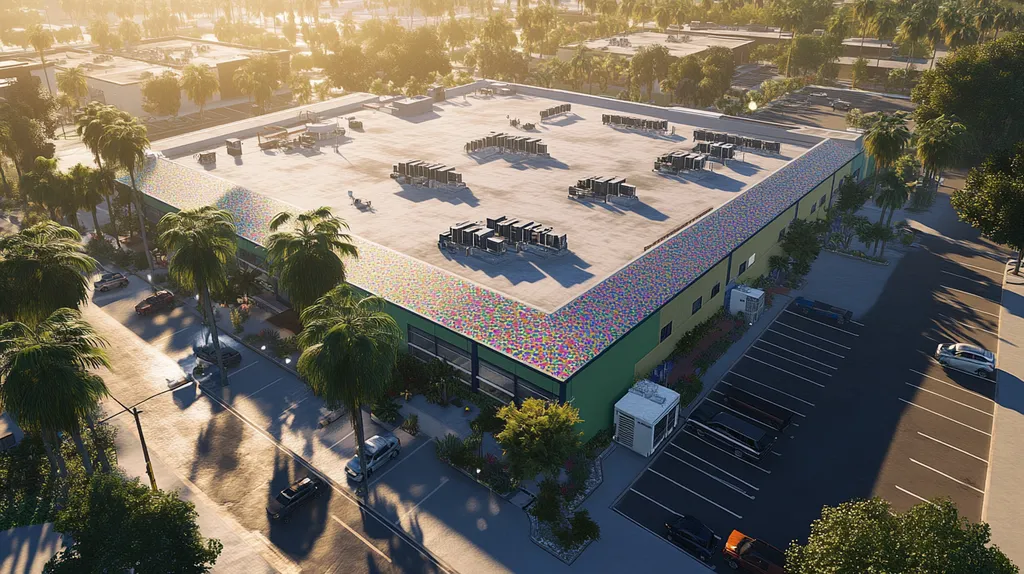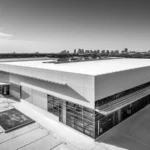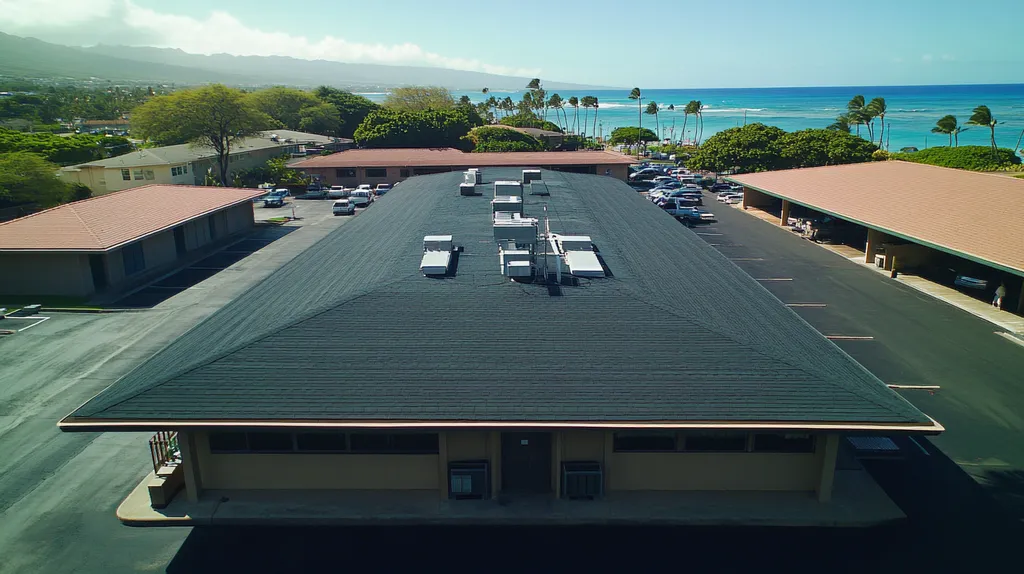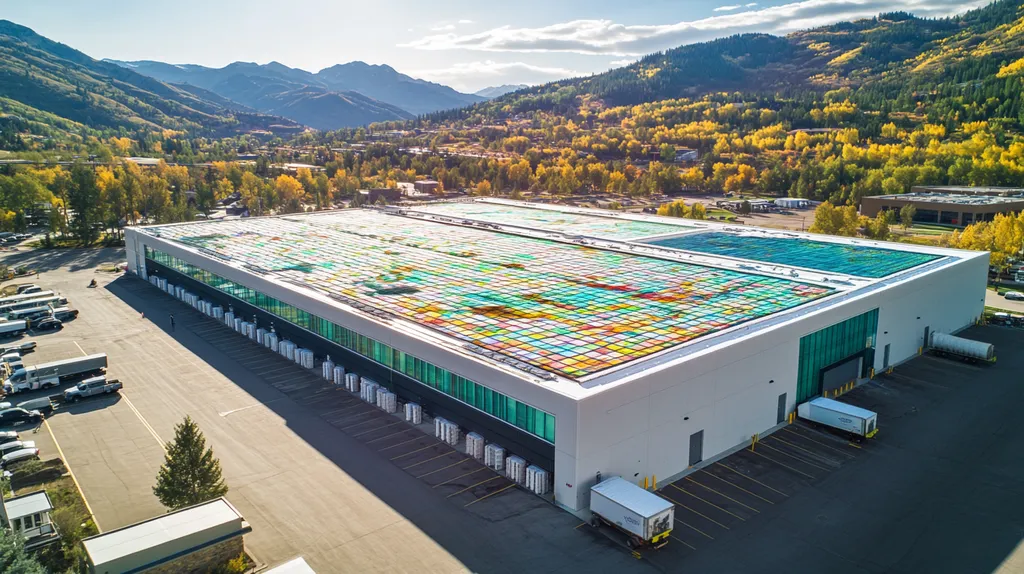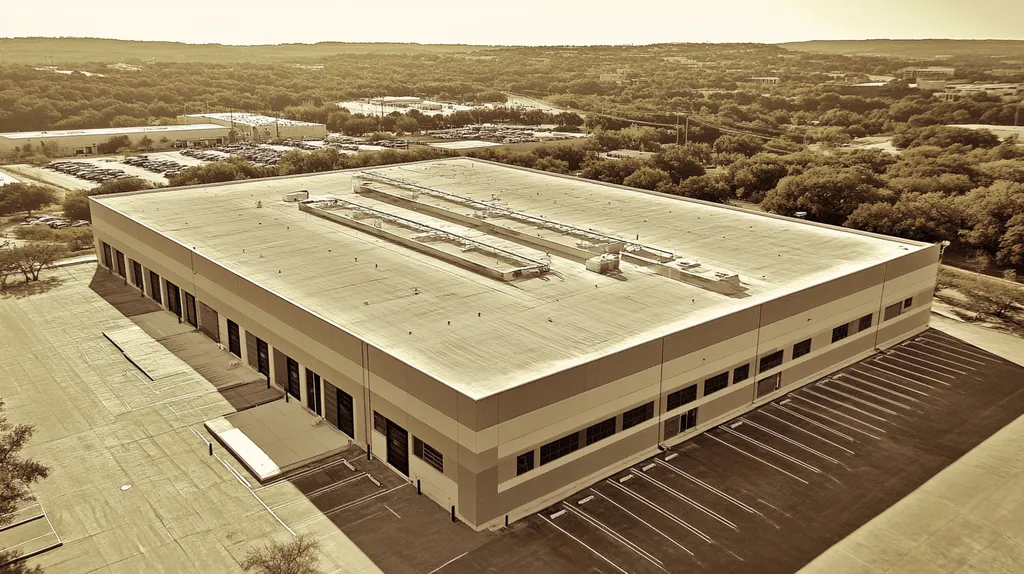Every year, commercial property owners waste millions of dollars on roofing projects that fail prematurely due to poor contractor selection. Industry data shows that 30% of commercial roofs require major repairs within five years of installation due to inadequate workmanship.
The conventional methods of hiring roofing contractors – relying on referrals, comparing estimates, and checking online reviews – often lead property owners into costly mistakes.
This analysis examines why traditional hiring approaches fall short and presents data-driven solutions that can protect commercial investments from substandard contractors.
SECTION 1: CURRENT PRACTICES
The stakes for hiring the correct commercial roof contractor are extraordinarily high. A poor choice can lead not only to substantial financial losses but also to safety hazards and long-term structural damage. Research indicates that improper roofing installation can diminish a roof’s lifespan by as much as 30%. Therefore, understanding how property owners currently select their contractors is vital, as conventional methods often fail to yield the best results.
Relying on Word-of-Mouth Referrals
Many property owners turn to word-of-mouth referrals as their primary method for finding roofing solutions. While personal recommendations can carry some value, they are deeply rooted in individual experiences, which can be misleading. Just because someone had a good experience doesn’t mean that contractor can handle specific commercial or industrial roofing needs.
The person making the referral may not fully understand roofing standards or the capabilities of the contractor they recommend. This can lead to the selection of contractors whose skills are mismatched with project requirements. Industry reports indicate that properties relying predominantly on referrals often encounter unexpected costs and subpar workmanship.
Moreover, there are no standardized metrics for comparing contractors based on referrals. A contractor who excels in residential roofing might not be suited for a commercial project. Therefore, depending solely on word-of-mouth can lead to costly mistakes. In today’s environment, where detailed evaluations are essential, property managers must adopt more trustworthy methods for assessing roofing contractors.
Checking Online Reviews and Ratings
Online reviews and ratings have grown increasingly popular as tools for evaluating potential contractors. Platforms like Google Reviews and Angie’s List can provide valuable insights into a contractor’s track record and client satisfaction. However, these reviews come with their own set of challenges. They can be subjective and may not give a complete snapshot of the services a contractor offers.
Moreover, reviews can be influenced or manipulated; companies may solicit positive feedback or have others create favorable reviews. This practice complicates the decision-making process, potentially leading property managers to select contractors based on flawed information.
Furthermore, online ratings often fail to account for the unique requirements of commercial roofing projects. Specific knowledge and craftsmanship are of paramount importance, yet they frequently remain obscured in general consumer feedback. This lack of specificity can mislead property owners into hiring contractors who don’t have the requisite skill set for commercial projects.
Although online reviews provide a glimpse into a contractor’s reputation, they should not be the sole basis for decisions. A more comprehensive evaluation framework is required to ensure contractors can meet the rigorous demands of commercial and industrial roofing.
Requesting Multiple Written Estimates
Asking for multiple written estimates is a common practice among property owners when hiring commercial roofing contractors. At first glance, this approach seems advantageous, allowing for price comparisons across various options. However, this strategy often creates more confusion than clarity.
Estimates can fluctuate significantly based on the scope of work, materials, and convenience factors mingled within each quote. Contractors may interpret project specifications differently, leading to discrepancies in pricing. Property owners can quickly become overwhelmed by estimates that lack uniformity, complicating their efforts to determine the actual costs of their roofing needs.
Additionally, low bids can easily lure property owners; however, these often hide inferior materials or subpar workmanship, resulting in long-term issues. By concentrating solely on price, property owners risk overlooking crucial factors such as contractor experience, warranties, and conformity with local building codes.
To avoid these pitfalls, property managers should seek detailed breakdowns in their estimates. This approach ensures informed decision-making based on both quality and cost considerations, ultimately leading to a successful roofing project.
SECTION 2: SYSTEMIC ISSUES
The decision-making process for hiring a commercial roofing contractor is fraught with systemic issues that can endanger both project quality and financial outcomes. Alarmingly, studies reveal that around 30% of roofing projects exceed budgets due to poor communication and insufficient background checks on contractors. Understanding these key challenges is crucial for property owners aiming to avoid costly mistakes. This section will delve into the critical problems of inadequate licensing, high turnover rates in the roofing industry, and the ambiguity of contract details.
Lack of Proper Licensing and Insurance
One of the primary obstacles in hiring commercial roof contractors is the absence of proper licensing and insurance. Many contractors operate without valid licenses, raising serious concerns about their expertise and reliability. This situation puts property owners at risk for potential liabilities, such as injuries on the job site or violations of local building codes due to substandard work.
Additionally, the importance of comprehensive insurance cannot be overstated. Contractors who lack adequate coverage can leave property owners financially exposed if accidents occur. For instance, if a worker sustains an injury while on-site and the contractor does not have workers’ compensation insurance, the financial burden could fall squarely on the property owner.
Therefore, verifying a contractor’s licensing and insurance credentials should be a non-negotiable step in the hiring process. Doing so not only safeguards the property owner’s investment but also elevates the overall standards within the roofing industry.
High Turnover Rates in the Industry
The roofing industry is plagued by astonishingly high turnover rates, with studies showing figures that can exceed 70%. This instability can disrupt project quality and continuity, causing significant challenges for property owners. When roofing companies frequently change workers, there’s a heightened risk of errors due to the unfamiliarity of new team members with specific project requirements.
Such turnover can lead to costly blunders and delays, further straining project timelines and budgets. As new personnel come into play, important insights and previous discussions between the contractor and the property owner may not be effectively communicated, leading to gaps in understanding.
To mitigate these issues, property owners should focus their attention on contractors with established workforces. Contractors that maintain a stable team demonstrate a commitment to quality and consistency, which can significantly enhance the likelihood of a successful project.
Inadequate Contract Details and Payment Terms
A common pitfall in the hiring process is the lack of clarity in contract details and payment terms. Many contracts feature vague language that can give rise to misunderstandings about project scope, timelines, and obligations. This ambiguity not only fosters conflict but can also lead to delays and inflated costs for property owners.
Similarly, payment terms are crucial yet often poorly defined. When there are no clear milestones and conditions for payment, property owners might find themselves paying upfront for work that is not completed as promised. Such situations can cause significant financial strain if the contractor fails to deliver.
To protect against these risks, property owners should prioritize concrete contract terms that clearly outline expectations. Doing so not only safeguards the property owner but also provides a structured road map for the contractor. Well-defined agreements that clarify deliverables, timelines, and payment schedules are essential for a smooth and successful roofing project.
SECTION 3: MISSED OPPORTUNITIES
In the high-stakes world of commercial roofing, overlooked details can lead to costly mistakes. A staggering 40% of property owners express regret over their contractor choice due to unmet expectations. This section pinpoints critical missteps that can ensnare property owners in inadequate service and inflated expenses. Key areas of focus include properly assessing contractor experience, verifying credentials, and identifying warning signs in communication.
Overlooking Contractor Experience and Specialization
Many property owners mistakenly chase low bids instead of prioritizing experience when hiring a commercial roofing contractor. This decision can have dire consequences, as specialized contractors possess the expertise necessary for handling complex roofing projects without a hitch. For instance, a contractor adept in flat roofing systems may struggle significantly with sloped roofs, leading to improper installations that cause leaks, damage, and costly repairs.
Aligning a contractor’s experience with the specific needs of the roof type is not just beneficial—it’s essential. Owners should scrutinize past project portfolios to ensure the contractor has relevant experience in their specific roofing system. Doing so helps ensure a successful outcome and long-term durability.
Furthermore, contractors with an established track record often enjoy strong connections with suppliers, giving them access to superior materials. This access can greatly enhance the quality and lifespan of the roofing system.
In summary, prioritizing contractor expertise over mere cost can help property owners avoid future headaches and deliver a successful roofing project.
Neglecting to Verify Physical Business Addresses
Failing to confirm a contractor’s physical business address is a major oversight committed by many property owners. Contractors without a verifiable address may lack a stable operational foundation, which raises questions about their legitimacy and reliability. In the absence of a physical location, reaching the contractor for future issues can transform into a daunting challenge.
A valid business address suggests an established presence within the community, often correlating with reliability. Property owners should conduct online searches or even visit the location to validate its authenticity.
Moreover, established contractors are more likely to have sound reputations and strong insurance and warranty offerings—critical factors that contribute to a successful roofing project and provide peace of mind for future maintenance.
Thus, verifying business addresses is a simple yet critical step toward protecting investments and ensuring high-quality service.
Ignoring Red Flags in Contractor Responses
Many property owners make the mistake of overlooking red flags that arise during communications with potential roofing contractors. For example, ambiguous answers, slow follow-ups, or reluctance to provide references are significant warning signs that should not be ignored. These indicators can point to deeper issues, such as a lack of professionalism or underlying problems within the contracting company.
Clear and transparent communication is essential for establishing trust between property owners and contractors. Written estimates should be comprehensive, and contracts should possess clear terms regarding timelines and responsibilities.
Moreover, reputable contractors take pride in their responsiveness. A contractor who is unable or unwilling to engage in meaningful dialogue may be unqualified to handle the complexities of a roofing project.
Being vigilant in recognizing these warning signals can empower property owners to avoid disastrous hiring decisions that lead to subpar outcomes.
SECTION 4: ROOT CAUSES
The pressure for quick and cost-effective roofing solutions can lead to dire consequences for commercial property owners. Studies show that many businesses prioritize immediate savings over quality, which results in inadequate installations. This widespread issue not only shortens the lifespan of roofs but also escalates maintenance costs and leaves properties vulnerable during severe weather events.
Pressure for Quick and Cheap Solutions
In an attempt to complete roofing projects quickly, many property owners often succumb to the allure of low-cost options. Driven by tight budgets and the desire to minimize disruptions to their operations, these decisions can backfire.
Lower-priced services frequently cut corners on critical elements such as high-quality materials and proper installation methods. This approach can lead to roofs that deteriorate prematurely and demand more frequent repairs, creating a cycle of escalating costs.
While quick fixes may seem financially savvy initially, they set a foundation for repeated issues. In contrast, investing in quality workmanship and superior materials will not only enhance durability but will also significantly lower long-term expenses. Ultimately, a well-maintained roof proves itself as a wise investment over time.
Limited Understanding of Roofing Standards
A lack of knowledge regarding roofing standards often clouds judgment among property owners. Many are unaware of the various roofing systems available or the unique requirements each one entails.
This unfamiliarity can lead to poor decision-making when selecting contractors or materials. For example, a property manager might mistakenly opt for a residential-grade roofing system that fails to meet the demands of an industrial facility.
Without an understanding of industry standards, property managers risk hiring non-compliant contractors, which introduces safety hazards and potential legal ramifications.
To combat this problem, property owners should take the initiative to educate themselves about roofing systems. Engaging with knowledgeable professionals can facilitate better-informed decisions that align with safety standards and project needs.
Inadequate Due Diligence in Hiring
Insufficient due diligence often hampers the hiring process for roofing contractors. Property owners frequently rush through the selection, focusing primarily on pricing.
This expedited approach can blind them to critical factors such as contractor experience, proper licensing, and the success of past projects. Skipping the vetting process can lead to disappointing outcomes.
For instance, a property owner might lock in a low-bid contractor only to later discover that the contractor lacks essential expertise, resulting in shoddy workmanship that demands expensive fixes.
To avert these pitfalls, thorough evaluation of prospective contractors is essential. Conducting background checks and reviewing references can help identify qualified professionals committed to quality work. In doing so, property owners can secure a successful roofing project aligned with their long-term interests.
DATA DRIVEN EVIDENCE
The stakes involved in hiring an unqualified commercial roof contractor can be staggering. Nearly 30% of roofing projects fail due to contractor errors, leading to not only costly repairs but also operational downtime and safety hazards. For property owners and facility managers, understanding these risks is crucial in navigating the hiring process. This section will examine contractor failure rates, the implications of hiring unlicensed professionals, and the critical importance of carefully assessing customer reviews.
Statistics on Contractor Failure Rates
Research reveals that around 20% of commercial roofing projects face significant issues due to contractor mistakes. Such failures typically stem from inadequate training and lack of experience. Common concerns include leaks, structural damage, and material defects, each of which can burden property owners with unexpected repair costs and shorten the roof’s lifespan.
Further emphasizing the severity, 45% of businesses grappling with roofing failures indicate they suffered lost revenue during repair periods. This stark reality illuminates how unqualified contractors jeopardize not just structural integrity but also the financial health of a business. These statistics serve as a rallying call for property owners to prioritize quality over economical choices when selecting their roofing contractors.
Impact of Unlicensed Contractors on Liability
Choosing unlicensed roofing contractors can expose property owners to substantial liabilities. A lack of proper licensing often indicates the absence of necessary insurance or bonding, leaving property owners vulnerable to potential accidents or damage. For example, if a worker is injured on the job and the contractor lacks proper insurance, the financial burden could shift onto the property owner, resulting in costly legal disputes.
Unlicensed contractors may also bypass critical local building codes or safety regulations, risking fines and additional legal issues. Such non-compliance can lead to operational shutdowns and inspection delays that further complicate business matters. Therefore, ensuring that contractors are licensed is not merely a precaution; it’s a critical step in safeguarding investments and maintaining peace of mind.
Analysis of Customer Review Patterns
Customer reviews play an essential role in the decision-making process for property owners. A study shows that 68% of property owners consult online reviews before hiring roofing contractors, indicating a strong desire for transparency in the industry. However, caution is warranted as patterns reveal common pitfalls. Many reviews pinpoint inadequate communication and substandard workmanship as recurring issues that often lead to safety compromises and extended project durations.
Interestingly, companies with higher ratings tend to invest more in employee training and customer service, recognizing that positive experiences translate into repeat business and referrals. Thus, property owners should critically analyze reviews, seeking consistent feedback rather than isolated opinions. By understanding these patterns, they can prevent costly mistakes that arise from hasty hiring decisions.
SECTION 6: ALTERNATIVE SOLUTIONS
For property owners and facility managers, the stakes are incredibly high when hiring commercial roof contractors. A staggering over 70% of roofing issues arise from poor contractor choices instead of material failure, underscoring the need for effective vetting. To navigate these risks, it’s essential to implement alternative solutions that enhance the reliability and quality of roofing projects.
Implementing Thorough Background Checks
Thorough background checks on potential roofing contractors are not just helpful—they’re imperative. Property owners should delve into a contractor’s business history, financial stability, and overall reputation in the industry. Key indicators like outstanding lawsuits or unresolved complaints can offer critical insights into a contractor’s reliability.
Reviewing past projects and client testimonials can reveal a lot about the quality of work a contractor provides. Requesting a portfolio that highlights experience with specific roofing types minimizes future complications and ensures that the contractor is well-versed in the necessary skills.
It’s equally crucial to check for proper licensing and insurance. A licensed contractor not only adheres to industry standards but also demonstrates professionalism. Meanwhile, sufficient insurance coverage protects property owners from potential liabilities during the roofing project.
By implementing thorough background checks, property managers can safeguard their investments and enhance the likelihood of project success. Gathering comprehensive information enables more informed hiring decisions tailored to the project’s needs.
Using Independent Verification Services
Employing independent verification services adds an invaluable layer of protection to the contractor selection process. These services specialize in screening and validating the qualifications of roofing contractors, helping property owners identify those who meet industry standards.
Independent verification fosters transparency in hiring. Such services can provide essential evaluations regarding a contractor’s financial health, customer satisfaction ratings, and project history. This objective analysis is crucial for narrowing down the list of reliable candidates.
Moreover, knowing that qualifications will be rigorously scrutinized deters dishonest contractors from exaggerating their capabilities, promoting a culture of ethics within the industry. Property owners who utilize third-party verification not only strengthen their hiring processes but also foster overall project credibility.
Adopting Standardized Contract Templates
Utilizing standardized contract templates simplifies negotiations and shields property owners from legal entanglements. These templates should unambiguously define the scope of work, timelines, payment structures, and warranties. Clarity in these areas is key to avoiding misunderstandings and disputes as the project unfolds.
Standardized contracts also enable consistency across various projects, allowing property owners to easily compare contractor proposals. This transparency streamlines decision-making and minimizes complexities that often impede effective evaluation.
Furthermore, integrating performance standards and penalties for non-compliance into these contracts holds contractors accountable for their promises. Establishing clear expectations promotes higher quality work and reinforces professional relationships.
Ultimately, adopting standardized contract templates provides a strong framework that safeguards both property owners and contractors. By clearly defining expectations, these documents pave the way for successful roofing projects that meet their intended goals.
The Bottom Line
The traditional approach to hiring commercial roofing contractors costs property owners millions in failures and repairs each year, with 30% of roofs requiring major work within five years of installation.
The data clearly shows that relying on word-of-mouth referrals, online reviews, and multiple bids is dangerously insufficient for protecting commercial roofing investments.
Success requires implementing rigorous contractor screening processes, including thorough background checks, independent verification services, and standardized contracts with clear accountability measures.
By adopting these data-driven solutions and abandoning conventional hiring methods, property owners can dramatically reduce their exposure to unqualified contractors while ensuring their roofing projects deliver lasting value.
The stakes are simply too high to continue with hiring practices that consistently lead to premature roof failures and financial losses.
FREQUENTLY ASKED QUESTIONS
Q. What are the risks of relying on word-of-mouth for commercial roof contractors?
A. Relying on informal referrals can lead to poor contractor choices, increasing financial risks. Individuals may not fully understand required roofing standards or the contractor’s capabilities, resulting in mismatched skills for specific projects. Without standardized metrics, unexpected costs and subpar workmanship can arise.
Q. How does lack of licensing impact hiring a commercial roof contractor?
A. Absence of proper licensing raises concerns regarding contractor expertise and reliability. It exposes property owners to potential liabilities, including injuries on-site and local building code violations. Verifying a contractor’s credentials is crucial for protecting investments and ensuring quality work standards.
Q. Why is contractor experience critical when hiring for commercial roofing?
A. Prioritizing contractor experience helps avoid costly mistakes in commercial roofing projects. Skilled contractors understand the complexities of different roofing systems, ensuring proper installation. Evaluating past portfolios ensures alignment with project needs and enhances durability, ultimately leading to more satisfactory outcomes.
Q. What are the consequences of poor contractor communication?
A. Insufficient communication can lead to misunderstandings, delays, and inflated costs. Vague contract terms may cause disputes over project scope and timelines. Clear and transparent dialogue is essential to establish trust and ensure both parties have aligned expectations for a successful completion.
Q. How do unlicensed contractors affect financial liability?
A. Hiring unlicensed contractors exposes property owners to substantial financial liabilities. Without proper insurance, any accidents or damages may fall on the property owner, leading to expensive legal disputes. Ensuring proper licensing is vital for safeguarding investments and reducing potential risks.
Q. What can property owners do to verify contractor reliability?
A. Property owners should implement thorough background checks on potential contractors, reviewing their business history, financial stability, and customer testimonials. Requesting portfolios showcasing relevant project experience enhances confidence in hiring decisions. Ensuring proper licensing and insurance further protects investments and project success.
Q. How can standardized contracts improve the hiring process?
A. Standardized contracts simplify negotiations, clearly defining scope, timelines, and payment structures. This clarity prevents misunderstandings and disputes, offering a structured framework for successful projects. Consistent contracts also facilitate easy comparison between contractor proposals, promoting informed decisions that enhance project outcomes.

